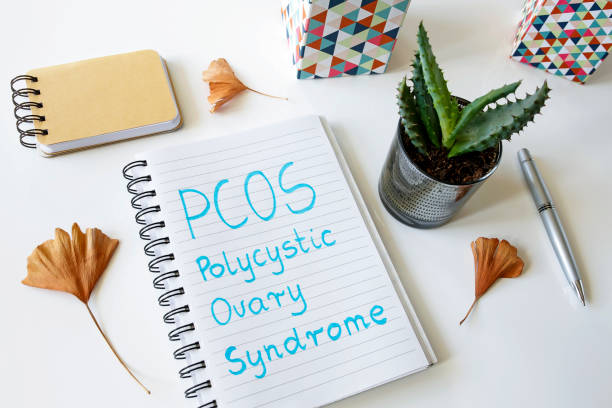Polycystic Ovary Syndrome (PCOS) is an endocrine disorder affecting 1 in 5 women. It is a hormonal disorder common among women of reproductive age. It could be caused – due to insulin resistance, hormonal imbalance, unhealthy lifestyle, or genetics.
With information available nowadays at a single click, it becomes difficult to filter the facts and myths regarding the condition.
Here we are with five common myths about PCOS.
Myth 1: Carbs are a Big No in PCOS
Avoiding carbs altogether is not a good idea. Carbohydrates are the major; source of energy to the body and the only fuel for the brain. However, the type of carbohydrate you choose in PCOS is important; than avoiding them completely. Complex carbohydrates such as whole grains and millets are high in fibre & low in the glycemic index that helps manage insulin levels.
High levels of insulin in the body leads to increased production of androgens. These, in turn, cause irregular menses, acne and body hair.
Pairing complex carbohydrates with an adequate intake of protein and fibre help manage insulin levels, body weight and improve PCOS symptoms.
Myth 2: Irregular menses always mean PCOS
Having irregular menses does not always mean you have PCOS. The average period cycle is of 21-35 days. There can be many reasons for having irregular menses like – thyroid disorder, extreme dieting, over-exercising, and excessive stress are some of the causes of irregular menses.
Irregular menses is a definite symptom of PCOS, along with the hormonal imbalance observed. But, PCOS is not the only one to cause it.
Myth 3: Only weight loss will help cure PCOS
Weight loss surely helps improve the symptoms of PCOS, but only weight loss is not the solution. Modifying and retorting to a Healthy Lifestyle will help improve insulin resistance, restore normal menstrual cycle and relieve PCOS symptoms.
Myth 4: Avoiding gluten & going gluten-free is the best for PCOS
Weight loss helps improve the symptoms of PCOS and, the most common myth among women with PCOS is that avoiding gluten will help in weight loss. A percentage of women with PCOS may suffer from gluten intolerance or celiac disease, and to prevent further complications, one should avoid gluten. But overall, if no such discomfort, one should focus on adequate intake of fibre rich foods, complex carbohydrates, substantial protein and healthy fats.
Myth 5: Medicines are the only way, or are there other ways to help treat PCOS?
Although prescribed medications are essential in the initial stage, a healthy balanced diet, regular and consistent exercise routine, and lifestyle changes with improvement in the sleep cycle, stress management will help with the insulin resistance and hormonal imbalance in PCOS and manage it better.
By separating fact from myth, you can empower yourself to live a complete, healthy life with PCOS.
Click here for more such Informational Blogs
You can also check our YouTube Channel for Video Explanations




